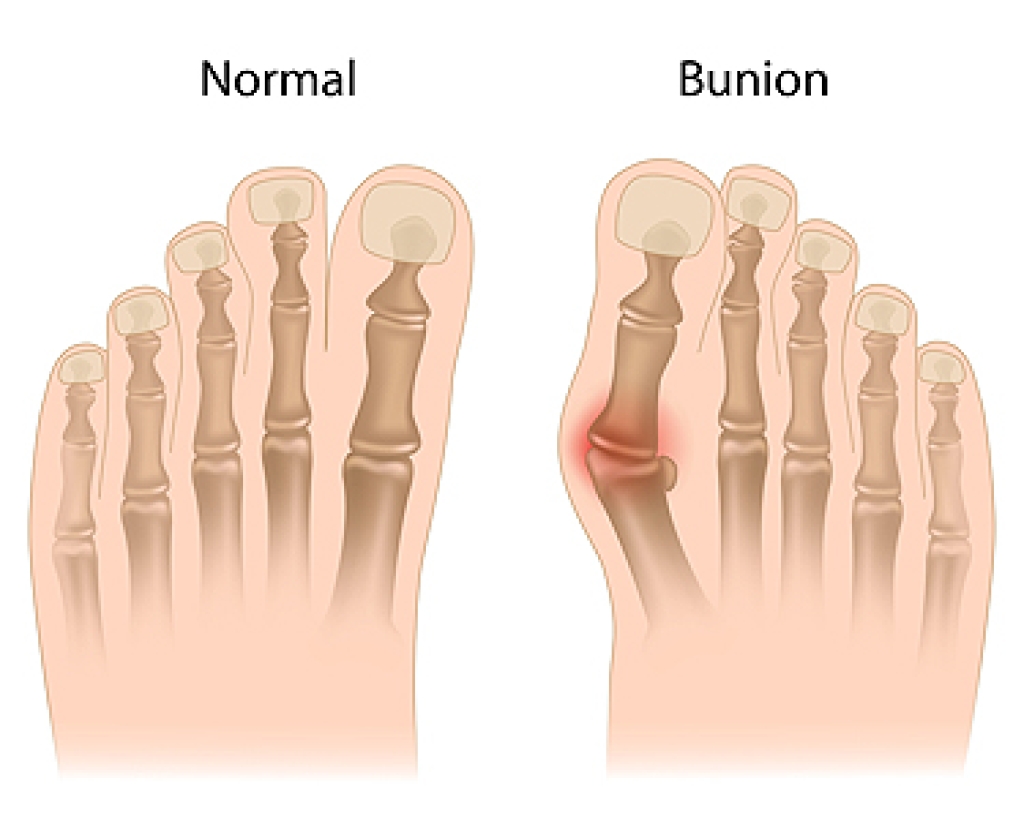
A bunion is a bony bump that forms at the base of the big toe, resulting from misalignment of the joint. It can cause pain, swelling, and difficulty in finding comfortable footwear. Genetics, wearing tight or ill-fitting shoes, and certain foot shapes can contribute to bunion development. To prevent bunions, it is important to wear shoes with a wide toe box and avoid high heels that put pressure on the front of the foot. Custom orthotics can provide support and alleviate pressure on the big toe joint. Stretching and strengthening exercises for the feet can improve alignment and reduce strain. Early intervention, such as using bunion pads and maintaining a healthy weight, can also help prevent the progression of bunions. If you have a bunion, it is suggested that you speak to a podiatrist who can provide you with additional methods for relief and treatment options.
If you are suffering from bunion pain, contact one of our podiatrists of Family Foot Health Center. Our doctors can provide the care you need to keep you pain-free and on your feet.
What Is a Bunion?
Bunions are painful bony bumps that usually develop on the inside of the foot at the joint of the big toe. As the deformity increases over time, it may become painful to walk and wear shoes. Women are more likely to exacerbate existing bunions since they often wear tight, narrow shoes that shift their toes together. Bunion pain can be relieved by wearing wider shoes with enough room for the toes.
Causes
- Genetics – some people inherit feet that are more prone to bunion development
- Inflammatory Conditions - rheumatoid arthritis and polio may cause bunion development
Symptoms
- Redness and inflammation
- Pain and tenderness
- Callus or corns on the bump
- Restricted motion in the big toe
In order to diagnose your bunion, your podiatrist may ask about your medical history, symptoms, and general health. Your doctor might also order an x-ray to take a closer look at your feet. Nonsurgical treatment options include orthotics, padding, icing, changes in footwear, and medication. If nonsurgical treatments don’t alleviate your bunion pain, surgery may be necessary.
If you have any questions, please feel free to contact our office located in Rogers and Berryville, AR . We offer the newest diagnostic and treatment technologies for all your foot care needs.
